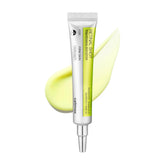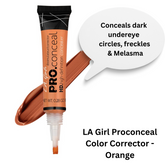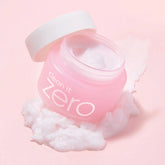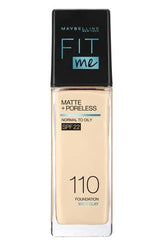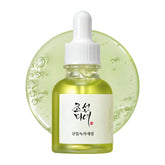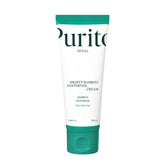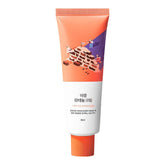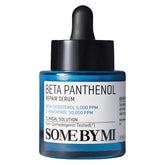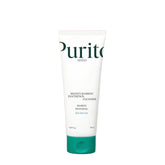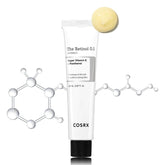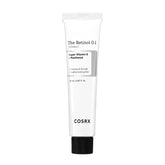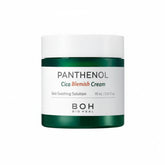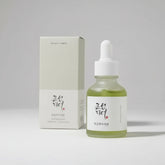-
Beauty of Joseon Calming Serum Green Tea + Panthenol (10ml) is your go-to solution for soothing and revitalizing sensitive skin. Infused with the natural goodness of green tea extract and the hydrating power of panthenol, this calming serum is specially formulated to reduce redness,...
- Rs. 4,599
- Rs. 4,599
- Unit price
- per
-
Purito - Mighty Bamboo Panthenol Cream 100ml – Intensive Hydration and Barrier Strengthening for Sensitive Skin In today’s skincare world, maintaining a healthy skin barrier is essential for combating dryness, sensitivity, and environmental stressors. The Purito Mighty Bamboo Panthenol Cream 100ml is a nourishing,...
- Rs. 5,599
- Rs. 5,599
- Unit price
- per
-
Mary & May Hyaluronic Panthenol Hydra Mask (30EA / 400 g) What It Is This product is a sheet‑mask set (30 sheets) designed for intensive hydration and soothing of dry, rough, or sensitive skin. The mask sheets are pre‑soaked in a hydrating essence rich in...
- Rs. 6,999
- Rs. 6,999
- Unit price
- per
-
The Anua 3 Ceramide Panthenol Moisture Barrier Cream (100ml) is a nourishing skincare product designed to strengthen and protect the skin's moisture barrier. This cream is particularly beneficial for those with dry, sensitive, or irritated skin. Key Features: 3 Ceramides: It contains a blend...
- Rs. 7,300
- Rs. 7,300
- Unit price
- per
-
Product Description Soothe, strengthen, and deeply nourish your skin with the Round Lab Soybean Panthenol Cream, a rich moisturizing cream formulated with Fermented Soybean Extract and Panthenol (Vitamin B5) to deliver long-lasting hydration and barrier repair. This cream from Round Lab’s beloved Soybean Line...
- Rs. 6,800
Rs. 7,500- Rs. 6,800
- Unit price
- per
-
The Some By Mi Beta Panthenol Repair Serum is a specialized skincare treatment designed to restore and strengthen the skin barrier. Formulated with the brand's patented Beta-Panthenol™ Complex, this serum aims to soothe, hydrate, and enhance the skin's resilience, making it suitable for all...
- Rs. 7,199
- Rs. 7,199
- Unit price
- per
-
Purito Mighty Bamboo Panthenol Cleanser 150ml – Gentle, Hydrating Cleanser for a Strengthened Skin Barrier Cleansing is the first and most important step in any skincare routine. A good cleanser should not only remove dirt and impurities but also support the skin’s natural barrier...
- Rs. 5,499
- Rs. 5,499
- Unit price
- per
-
COSRX The Retinol 0.3 Cream (20ml) is a potent anti-aging night cream formulated with 0.3% pure retinol, designed to reduce the appearance of fine lines and deep wrinkles, enhance skin firmness, and improve overall skin texture and tone. This cream is best suited for...
- Rs. 5,999
- Rs. 5,999
- Unit price
- per
-
Cosrx - The Retinol 0.1% Super Vitamin E + Panthenol Cream 20ml: A Comprehensive Guide to Skin Rejuvenation As we age, our skin's ability to renew itself diminishes, leading to signs of aging like fine lines, wrinkles, and uneven skin tone. Incorporating a potent...
- Rs. 6,349
- Rs. 6,349
- Unit price
- per
-
Bioheal BOH Panthenol Cica Blemish Cream 75ml: The Ultimate Soothing Cream for Blemish-Prone, Sensitive Skin Discover the transformative power of Bioheal BOH Panthenol Cica Blemish Cream, a must-have for anyone dealing with blemishes, irritation, or skin sensitivity. Formulated with 5% Panthenol and Cica (Centella...
- Rs. 6,300
- Rs. 6,300
- Unit price
- per
-
The Beauty of Joseon Calming Serum: Green Tea + Panthenol (10ml) is your go-to solution for achieving calm, hydrated, and balanced skin. Infused with green tea extract, this serum provides powerful antioxidant and anti-inflammatory benefits, effectively soothing irritated and sensitive skin. Green tea, rich...
- Rs. 5,500
Rs. 6,163- Rs. 5,500
- Unit price
- per
Q1: What is panthenol, and how is it used in skincare? A1: Panthenol, also known as provitamin B5, is used in skincare for its hydrating and soothing properties.
Q2: How does panthenol work to benefit the skin? A2: Panthenol is converted to vitamin B5 in the skin, where it moisturizes, soothes, and supports the skin's natural barrier.
Q3: What skin concerns can panthenol address? A3: Panthenol is effective for soothing irritation, reducing redness, and hydrating dry or sensitive skin.
Q4: Is panthenol suitable for all skin types? A4: Yes, panthenol is generally suitable for all skin types, including sensitive and dry skin.
Q5: Can panthenol be used alongside other skincare ingredients? A5: Yes, panthenol can be safely combined with a variety of skincare products and ingredients.
Q6: How often should panthenol be applied in a skincare routine? A6: Panthenol can be used daily and is often found in serums, moisturizers, and other skincare products.
Q7: Can panthenol be used during pregnancy or while breastfeeding? A7: Panthenol is generally considered safe for use during pregnancy and breastfeeding.
Q8: Can panthenol be paired with active ingredients like retinol or alpha hydroxy acids (AHAs)? A8: Yes, panthenol can complement these active ingredients by providing hydration and soothing effects.
Q9: Can panthenol help with skin repair and wound healing? A9: Yes, panthenol can aid in skin repair and promote wound healing when applied topically.
Q10: Is panthenol beneficial for addressing sunburn or after-sun care? A10: Panthenol's soothing properties make it suitable for alleviating sunburn and providing relief after sun exposure.
Q11: Can panthenol be applied to sensitive or compromised skin, such as after dermatological procedures? A11: Yes, panthenol can be used on sensitive or post-procedure skin to promote healing and reduce discomfort.
Q12: Are there any side effects or precautions associated with using panthenol in skincare? A12: Panthenol is generally well-tolerated, but it's essential to follow product instructions and discontinue use if irritation occurs.
Q13: Is panthenol primarily used in moisturizers, or are there other product types it can be found in? A13: Panthenol can be found in various skincare products, including serums, creams, lotions, and masks.
Q14: Can panthenol be used to treat dry or chapped lips? A14: Yes, panthenol is a common ingredient in lip balms and can help hydrate and heal chapped lips.
Q15: Can panthenol be incorporated into a daily skincare routine for long-term benefits? A15: Yes, using panthenol regularly can contribute to improved skin hydration and overall skin health.
Q16: Does panthenol have anti-aging properties, or is it primarily for hydration and soothing? A16: Panthenol primarily hydrates and soothes the skin but can indirectly support healthy-looking skin by maintaining its moisture barrier.
Q17: Is panthenol a fragrance-free ingredient suitable for sensitive skin? A17: Yes, panthenol is often fragrance-free and is well-suited for sensitive skin.
Q18: Can panthenol be used in body skincare products, or is it primarily for the face? A18: Panthenol is used in various body skincare products to hydrate and soothe the skin.
Q19: Are there different forms of panthenol, and do they have varying effects on the skin? A19: Panthenol is typically used in the form of dexpanthenol, and its effects on the skin are consistent.
Q20: Is panthenol an ingredient suitable for people of all ages, including children and the elderly? A20: Panthenol is generally safe and suitable for individuals of all ages, from children to the elderly, for skin hydration and care.
Recently Viewed Products
- Choosing a selection results in a full page refresh.



